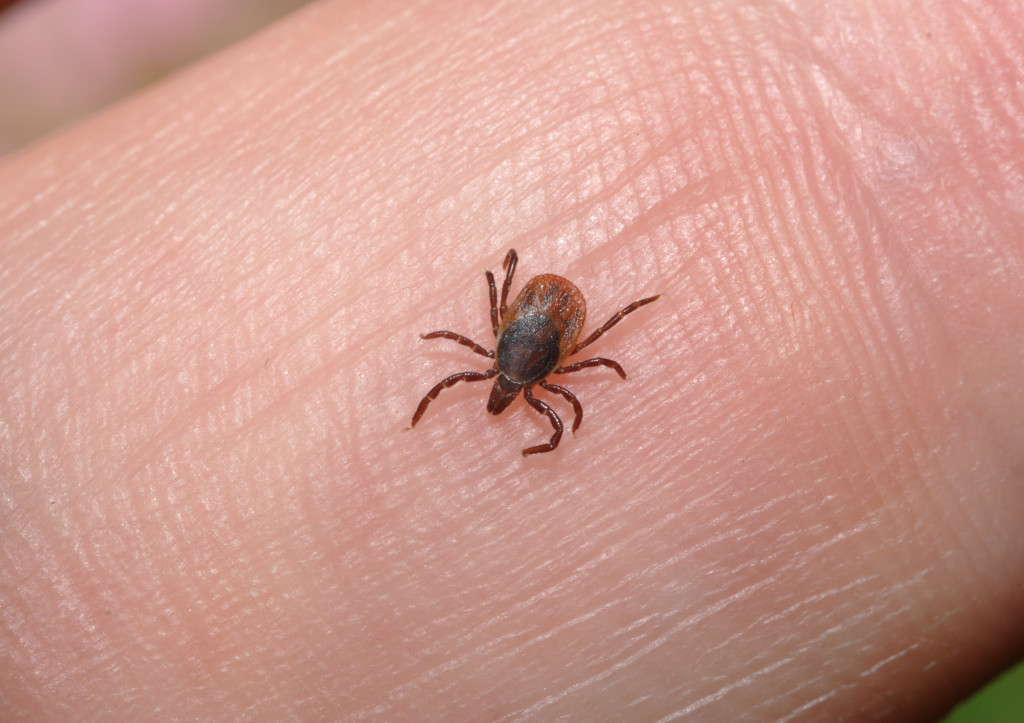• Lyme disease is a bacterial infection caused by an infected deer tick bite and can have serious consequences if left untreated.
• Symptoms include fatigue, joint pain, muscle aches, memory problems, nerve damage, and difficulty with balance or coordination.
• Treatment of Lyme Disease includes antibiotics to fight symptoms, hyperthermia as an alternative therapy, and herbal supplements.
• Prevention includes wearing long-sleeved shirts and pants, using insect repellent with DEET and avoiding tall grasses and brushy areas.
Lyme disease is a bacterial infection caused by the bite of an infected deer tick. Every year, tens of thousands of people are diagnosed with Lyme Disease. Most cases can be treated and cured with antibiotics, but what happens when it goes untreated? Understanding the risks associated with Lyme disease is important to get proper treatment if you’re ever infected. Here are some of the potential effects of leaving Lyme disease untreated.
The Effects of Untreated Lyme Disease
The first thing to understand about untreated Lyme disease is that it can cause long-term health problems—even after the initial infection has been treated. Some symptoms include:
- Fatigue
- Joint pain
- Muscle aches
- Memory problems
If left untreated for a long period, Lyme disease can cause more serious issues such as nerve damage or even heart problems.
Nerve Damage
Nerve damage from untreated Lyme disease can cause numbness, tingling, shooting pains, and even muscle weakness. These symptoms can persist for months or even years after treating the initial infection. This can cause difficulty with balance or coordination.
Memory and Concentration Problems
Untreated Lyme disease can cause problems with memory and concentration. This can result in difficulty remembering things, difficulty concentrating on tasks and even a decline in cognitive functioning. You may also notice changes in your personality or mood, such as irritability and depression.
Heart Problems
Untreated Lyme disease can also affect the heart. Lyme carditis is a serious complication of untreated Lyme disease. It causes heart muscle inflammation and can lead to an irregular heartbeat, chest pain, shortness of breath, and even cardiac arrest. You may also be more likely to develop heart problems if you have an underlying heart condition.
It is also important to note that these symptoms can linger for years after infection. Sometimes, you may not realize you have been infected until months or years later because the bacteria continue to spread throughout the body even after treatment has begun. As a result, you need to be aware of the signs and symptoms of Lyme Disease so you can seek treatment as soon as possible if you suspect you have been infected.

Treatment and Management of Lyme Disease
The good news is that Lyme disease can be treated with antibiotics. However, the sooner you seek treatment, the better your chances of recovery. Here are some of the options for treating Lyme disease:
- Antibiotics: Antibiotics are the most common treatment for Lyme Disease. They effectively fight the infection and can help shorten the duration of symptoms. These are administered only after positive testing and diagnosis.
- Hyperthermia: Using hyperthermia to treat Lyme is an alternative therapy to treat the disease. It involves using heat to kill the bacteria that cause the infection and is effective in some cases. This treatment should only be performed under the supervision of a doctor who uses this method.
- Herbal Supplements: Some people have found relief from using herbal supplements to treat Lyme Disease. These are generally used in conjunction with other treatments and should be discussed with your doctor before taking them.
Lyme Disease Prevention Tips
The best way to protect yourself from getting infected with Lyme disease is by taking basic precautions outdoors where ticks are present. This includes wearing long-sleeved shirts and pants, using insect repellent containing DEET, and avoiding tall grasses and brushy areas. Tuck your pants into your socks when walking through tall grasses or wooded areas, and check yourself for ticks after being outside.
It is also a good idea to keep an eye out for any unusual rashes or lesions on your skin. These could indicate an infection with Borrelia burgdorferi (the bacteria that causes Lyme disease). If you have pets at home, check them regularly for ticks and remove any that you find. If you have kids, teach them how to protect themselves from ticks and remind them to check for ticks after being outside.

Finally, if you think you may have been infected with Lyme Disease, it is important to seek medical attention as soon as possible. Early treatment can help minimize the symptoms and reduce the risk of long-term complications. You can get back to feeling your best with proper diagnosis and treatment.
Lyme disease is a serious condition, and proper treatment is essential. Knowing the risks associated with leaving Lyme disease untreated can help you get the care you need if you ever face this infection. Be sure to take precautionary measures outdoors, and don’t hesitate to seek medical attention if you suspect you have been infected. With early diagnosis and treatment, you can help reduce the potential for long-term complications.

